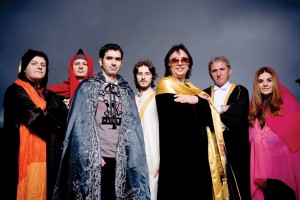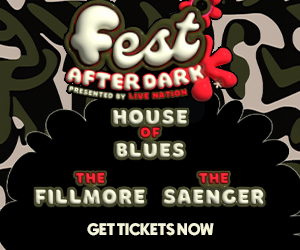 “We were kids,” Sergio Dias Baptista says. “I was 16 when we had a coup d’etat here in 1964. Everything changed and there was repression. Of course, we would fight back, but we fought back laughing instead of being a part of any party.” Their refusal to take orthodoxies seriously made Os Mutantes political as they spoke modern art to power. Singer Caetano Veloso described the psychedelic rock band as “half amateurs [who] seemed not so much copies of the Beatles … but as their equals, creators on the same level.” In 1967, Veloso, Os Mutantes, Gilberto Gil and Tom Ze were part of the musical cutting edge in Brazil, one that would come to be known as “Tropicalia,” and Veloso and Gil would be imprisoned and exiled for their efforts, but Os Mutantes “had the face of the avant-garde pop of the decade,” Veloso wrote.
“We were kids,” Sergio Dias Baptista says. “I was 16 when we had a coup d’etat here in 1964. Everything changed and there was repression. Of course, we would fight back, but we fought back laughing instead of being a part of any party.” Their refusal to take orthodoxies seriously made Os Mutantes political as they spoke modern art to power. Singer Caetano Veloso described the psychedelic rock band as “half amateurs [who] seemed not so much copies of the Beatles … but as their equals, creators on the same level.” In 1967, Veloso, Os Mutantes, Gilberto Gil and Tom Ze were part of the musical cutting edge in Brazil, one that would come to be known as “Tropicalia,” and Veloso and Gil would be imprisoned and exiled for their efforts, but Os Mutantes “had the face of the avant-garde pop of the decade,” Veloso wrote.
“We were in the middle of the Sputnik era, and were in tune to everything that was happening in the world,” Baptista says. “Einstein, Matisse, Picasso and the modern art movement, and the beatniks. All of this is what forged us.”
In one form or another, the band performed until 1978, and its highlights were re-released in 1999 on Everything is Possible: the Best of Os Mutantes. In 2006, a new incarnation led by Sergio Dias Baptista played a reunion show in London. Mutantes Ao Vivo: Live at the Barbican Theatre, Londres 2006 demonstrates Baptista’s ability to bring the band’s eclectic sound to the stage today, and the new studio album Haih or Amortecedor shows that it is still a central part of his musical vocabulary.
Os Mutantes play Tipitina’s October 17.
.



